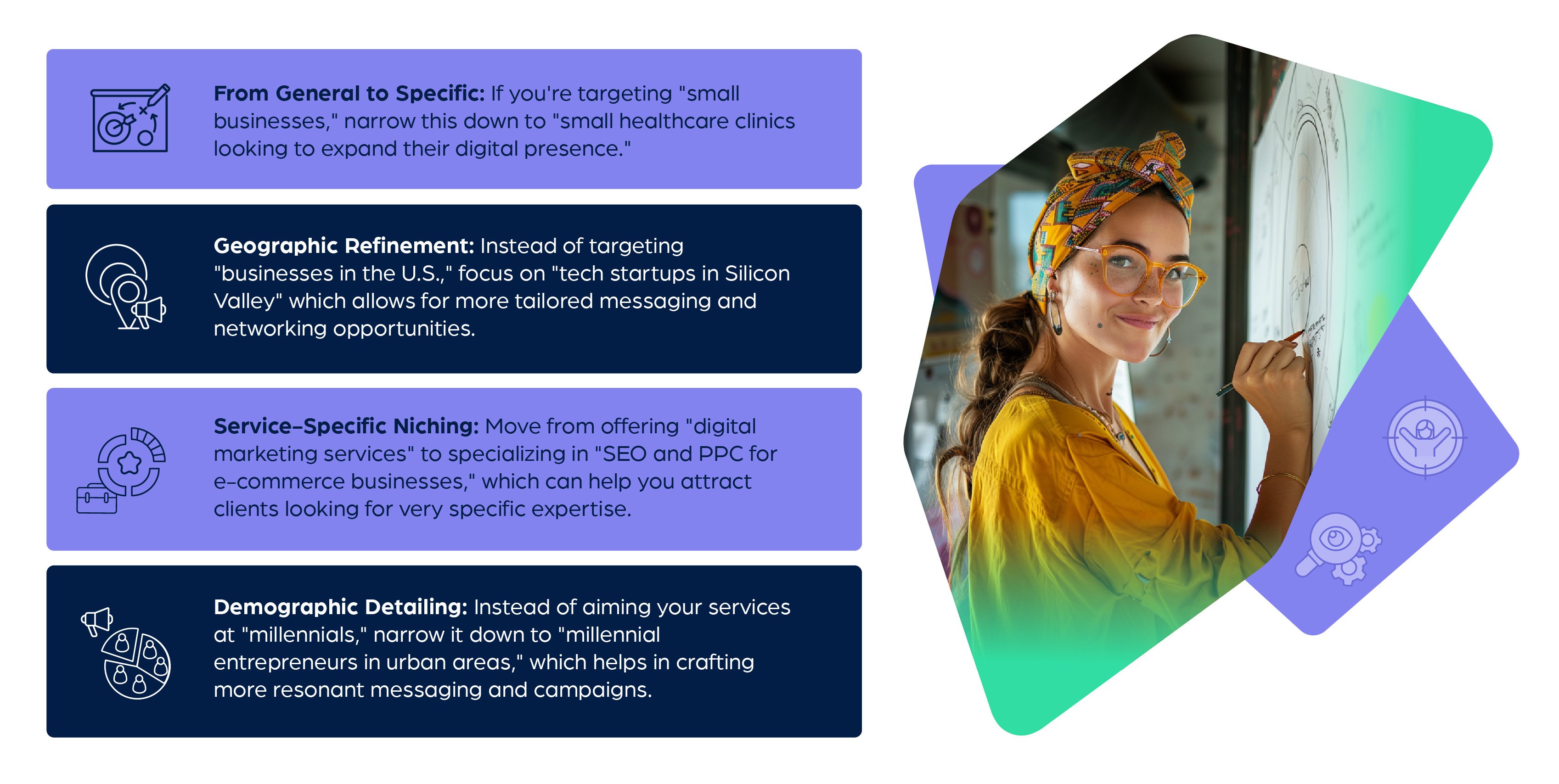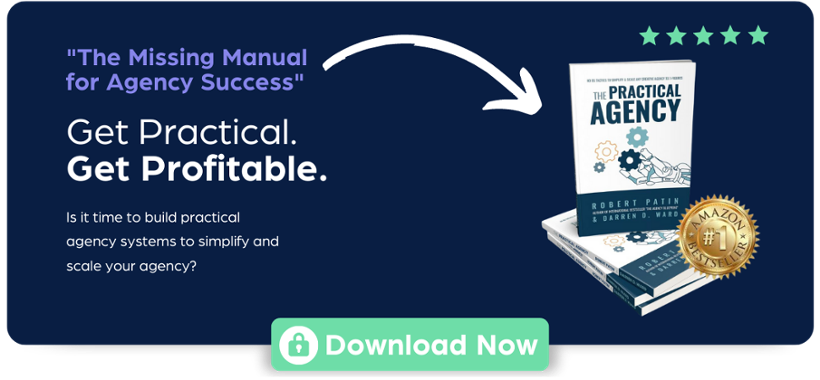
Do your sales calls end with more "I'll think about it" than signed contracts? Is your agency's growth stalling because your conversion rates are languishing below 20%? If every unsuccessful pitch leaves you doubting your sales strategy and dreading the next call, you're not alone. Many agency owners grapple with these challenges, feeling a growing despair that perhaps they're not cut out for this crucial part of the business.
It's frustrating when no amount of tweaking your pitch seems to make a difference. But what if the problem isn't the quality of your pitch, but something more fundamental? This isn't just about making small adjustments; it's about embracing a transformational approach that redefines how you engage with potential clients.
Do You Believe In Your Own Offer?
It’s common to start questioning the value of your services after a string of rejections. They can quickly start to erode your confidence, making you wonder if your agency truly offers what the market needs.
Understanding the Impact of Misaligned Leads:

When you're constantly hearing 'no', it's easy to assume the problem lies with you, not with the suitability of the leads. This doubt can seep into every sales call, making it harder to present your agency with conviction.
The solution many agency owners gravitate to is targeting a broader market to cast a wider net. While this strategy may attract a higher number of leads, they’re often much colder - meaning you have to invest way more time in hopes of converting them. Instead, focus your attention on one specific niche, you can attract clients who genuinely need what you offer, enhancing your belief in your agency’s value.
Here are some ways to refine your general target market into a more specific niche:
- From General to Specific: If you're targeting "small businesses," narrow this down to "small healthcare clinics looking to expand their digital presence."
- Geographic Refinement: Instead of targeting "businesses in the U.S.," focus on "tech startups in Silicon Valley" which allows for more tailored messaging and networking opportunities.
- Service-Specific Niching: Move from offering "digital marketing services" to specializing in "SEO and PPC for e-commerce businesses," which can help you attract clients looking for very specific expertise.
- Demographic Detailing: Instead of aiming your services at "millennials," narrow it down to "millennial entrepreneurs in urban areas," which helps in crafting more resonant messaging and campaigns.
Avoid the Temptation to Oversell
Ever find yourself pressing too hard during sales calls? It’s a common trap for agency owners desperate to clinch every potential client. This intense push can actually deter prospects, suggesting desperation rather than competence. Overselling not only alienates potential clients but can also fray existing relationships by eroding trust.
Signs You Might Be Overselling:
- You're talking more than listening: If you dominate conversations without seeking to understand the client’s needs, you might be overselling.
- You rush the sales process: Trying to close the deal in the first conversation is a classic sign of overselling.
- You ignore client cues: Dismissing or overlooking clients’ hesitations or concerns can be perceived as pushy.
- You focus solely on closing: Concentrating only on sealing the deal rather than building a relationship suggests you’re more interested in your success than the client’s needs.
To shift away from overselling, focus on educating rather than selling. Help prospects understand their problems and offer solutions as a knowledgeable advisor, not just a vendor.
Need to Shift from Selling to Advising?
Keep these two critical pieces of advice in mind:
- Shift your approach from selling to educating. Help your prospects understand their problems better and guide them through possible solutions, positioning yourself as a knowledgeable advisor.
- Use open-ended questions that invite clients to discuss their needs and concerns. For example, ask "What has been your biggest challenge with past providers?" This opens up the conversation and lets clients express their needs without feeling pressured.
Still not sure how this translates during an actual sales call? Keep these conversation starter ideas handy:
- "Let’s explore what has been working for your current strategies and where there might be room for improvement."
- "Can you tell me about a time when a project didn’t deliver the results you were hoping for? What do you think was missing?"
- "What are your top priorities this quarter, and what barriers are you facing in achieving them?"
By focusing on building trust and offering value through understanding and education, you transform sales conversations from high-pressure pitches to meaningful discussions. This not only makes the sales process more enjoyable for both parties but also significantly increases the likelihood of forming lasting client relationships.
Focus on Goal Alignment To Close the Deal
Even the best sales pitches can fall short thanks to a weak close. Many agency owners falter here, not because they lack the right services, but because they fail to align the client’s goals with the solutions they offer.
This can happen when:
- Goals or definitions of success remain unclear, causing discussions that become vague and non-committal, leading to uncertainty from potential clients about the tangible benefits of your services.
- You fail to quantify the benefits of working with you. Clients want to know what they are getting and how it will impact their business, so without specific metrics or expected outcomes, your services might seem intangible or ineffective.
Instead, leverage goal-oriented closing strategies on your sales calls, which look like:
- Early in the conversation, set clear objectives for what the client can expect from your services. Discuss specific metrics or milestones that your agency will aim for, such as the number of new leads your agency can generate for them.
- Whenever possible, use data and metrics to illustrate how your services have helped similar clients. For example, "Our approach has helped similar businesses increase their lead generation by X% within Y months."
And make sure to reinforce the relationship through metrics. This can sound like:
- "Based on our discussion, achieving a 20% increase in your online engagement seems to be a key objective. Here’s how we plan to track and achieve this goal..."
- "Considering your need for cost-effective solutions, we’ve tailored our strategy to maximize ROI. Our clients typically see a return of X times their investment within the first six months."
Sealing Deals with Confidence: Your Path to Sustainable Agency Growth
By focusing on goal alignment and using quantifiable outcomes, you not only close the sale more effectively but also set the stage for a successful client relationship. This approach shows that you are not just interested in selling but are genuinely invested in the client’s success. Remember, successful sales are not about manipulation or pressure; they’re about genuine connections, understanding client needs, and delivering real value.
Want to learn more? Watch our video below about 6 Basic Skills To Build A $1M Agency. Check out our Youtube Channel for more industry insights.
